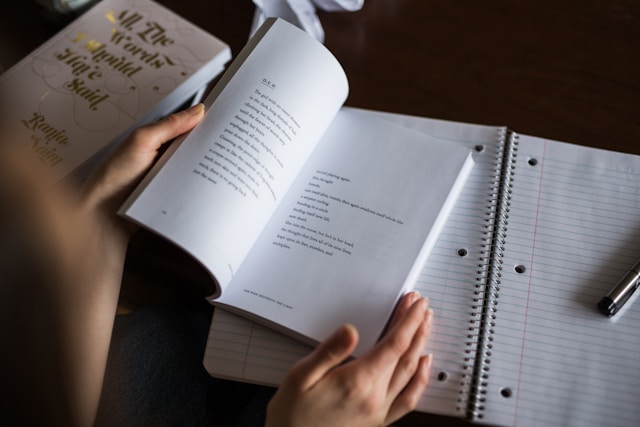
The English Renaissance, a period of cultural and artistic flourishing in England, was marked by the emergence of some of the most influential poets in English literature.
These poets, who wrote between the late 15th and early 17th centuries, were inspired by the pan-European Renaissance, which had its roots in Italy in the late 14th century.
In this blog post, we will explore the most famous English Renaissance poets, the influence of Italian forms on their works, and the enduring legacy of their contributions to English poetry.
The Influence of Italian Forms on English Poets
The Italian Renaissance left an indelible mark on English literature, significantly shaping the work of English poets.
With a focus on humanism, classical learning, and the arts, this period of cultural revival had a profound influence on the literary landscape.
One of the notable impacts was seen in the adoption and adaptation of the sonnet form by English poets, a structure that originated in Italy through the works of Petrarch.
The sonnet, characterized by its strict framework of 14 lines, became a vehicle for expression and artistic exploration in the hands of English literary figures.
Notable poets such as Sir Philip Sidney and William Shakespeare embraced and personalized this poetic form, infusing it with their distinctive voices and perspectives.
- Read also: Time Travel Through Text: Renaissance Literature Characteristics
- Read also: Things To Know: Harlem Renaissance Literature Facts
Most Famous of English Poets

During the Renaissance period, England witnessed a flourishing of literary brilliance, with notable poets leaving an indelible mark on the landscape of English literature.
Let’s delve deeper into the lives and contributions of some of the most influential poets of the era:
Edmund Spenser (1552-1599)
Edmund Spenser, often hailed as the precursor to William Shakespeare, stands as a towering figure in English poetry.
His magnum opus, “The Faerie Queene,” is an epic allegory that weaves together tales of chivalry, virtue, and morality.
Spenser’s mastery of the sonnet form is evident throughout his work, as he effortlessly combines intricate storytelling with poetic elegance.
Sir Philip Sidney (1554-1586)
Sir Philip Sidney, a distinguished courtier and poet, left an indelible mark on English literature with his exquisite sonnet sequences.
“Astrophil and Stella,” one of his most renowned works, showcases Sidney’s skill in the Petrarchan tradition.
Through themes of love, desire, and human emotion, Sidney’s poetry resonates with depth and sincerity, captivating readers with its timeless beauty.
Christopher Marlowe (1564-1593)
Christopher Marlowe, renowned for his brilliance in both drama and verse, made significant contributions to English literature during his brief but impactful life.
His mastery of dramatic blank verse is exemplified in works such as “Doctor Faustus,” a compelling exploration of ambition, morality, and the human condition.
Marlowe’s bold storytelling and probing examination of societal norms continue to captivate audiences to this day.
William Shakespeare (1564-1616)
William Shakespeare, often hailed as the greatest playwright and poet in the English language, remains an undisputed giant of literature.
Mastering the sonnet form with timeless works like “Sonnet 18” and “Sonnet 116,” Shakespeare’s poetic brilliance extended to his plays.
His unparalleled ability to capture the intricacies of human nature and his exploration of universal themes in plays like “Hamlet,” “Romeo and Juliet,” and “Macbeth” continue to captivate audiences worldwide.
Ben Jonson (1572-1637)
Ben Jonson, a contemporary of Shakespeare, carved his niche in English literature as a playwright and poet with a distinctive flair for wit and satire.
Renowned for his sharp social commentary, Jonson’s play “Volpone” stands as a testament to his incisive observations on the societal norms and human folly of his time.
His comedic genius and insightful critiques have secured him a lasting place in the literary canon.
John Donne (1572-1631)
John Donne, a trailblazer in English poetry, brought a fresh and innovative perspective to the literary landscape.
Focused on religious themes, love poetry, and metaphysical conceits, Donne’s works, such as “The Holy Sonnets” and “A Valediction: Forbidding Mourning,” reflect his profound exploration of complex emotions and philosophical ideas.
His bold use of language and unconventional style left an enduring impact on subsequent generations of poets.
John Milton (1608-1674)
John Milton, an epic poet of unparalleled stature, contributed significantly to English literature with his magnum opus, “Paradise Lost.”
Milton’s exploration of religious and political themes, coupled with his command of blank verse, set a standard for epic poetry.
“Paradise Lost” delves into the Fall of Man, showcasing Milton’s intricate narrative skill and profound reflections on morality.
His enduring influence on poetry and political thought remains unparalleled.

Themes of the English Renaissance
Let’s delve into the intricate details of the prevalent themes that graced the literary landscape during this transformative era:
Love and desire
English Renaissance poets, influenced by Petrarchan traditions, delved into the complexities of love and desire.
Notable works, such as Sir Philip Sidney’s “Astrophil and Stella” and William Shakespeare’s sonnets, depicted the intricacies of romantic passion and unrequited love.
The sonnet form, with its 14 lines and structured rhyme scheme, became a poignant vehicle for expressing matters of the heart.
Heroism and mortality
Poets of the era contemplated human potential, ambition, and the transient nature of life.
Christopher Marlowe’s “Doctor Faustus” and Shakespeare’s plays, including “Macbeth” and “Hamlet,” delved into themes of heroism, the consequences of unchecked ambition, and the inevitable mortality that shapes human existence.
Nature and the pastoral
English Renaissance poetry often embraced the pastoral tradition, idealizing landscapes and celebrating the beauty of the natural world.
Edmund Spenser’s “The Faerie Queene” and John Milton’s “Paradise Lost” transported readers to idyllic settings, intertwining nature with allegorical narratives.
Religion and morality
The profound religious and moral landscape of the time found expression in the works of poets like John Donne and John Milton.
Donne’s religious poetry, including the “Holy Sonnets,” grappled with themes of faith, doubt, and the complexities of the human condition.
Milton, in “Paradise Lost,” delved into theological questions, exploring the consequences of human disobedience and the nature of morality.
Politics and power
Reflecting on the social order and justice of their time, poets explored political themes.
Ben Jonson’s “Volpone” and Shakespeare’s plays, such as “Julius Caesar” and “Richard III,” delved into the complexities of political power, ambition, and the consequences of unchecked authority.

- Read also: Exploring the Legacy: Famous Harlem Renaissance Poets
- Read also: The Legacy: Famous Renaissance Poets Who Shaped Literature
The Enduring Legacy
The English Renaissance poets left an indelible mark on English literature, shaping the way we see the world and ourselves. Their works continue to inspire and influence writers to this day, and their contributions to the English language and literary traditions remain unparalleled.
- Shaping perspectives: From matters of love and morality to explorations of power and politics, their writings have provided a rich tapestry of themes that resonate with the human experience.
- Enduring inspiration: The enduring nature of their creations is evident in the continued inspiration drawn by contemporary writers.
- Influence on language and tradition: Their linguistic prowess, innovative use of literary devices, and mastery of poetic forms have become integral components of the language we use today.
- Unparalleled contributions: Their exploration of diverse themes, from the complexities of human emotions to profound theological inquiries, laid the groundwork for a multifaceted literary landscape.
Conclusion
The English Renaissance poets were pioneers of their time, and their works continue to captivate and inspire readers.
By exploring the influence of Italian forms on their works and the themes they explored, we can gain a deeper appreciation for the enduring legacy of these literary giants.


